FILMSTACK ZINE PROJECT
calling all cinephiles or in the words of cinephile pamela anderson: "movie lovers"
at turning points in history, it’s important to reflect, converse, and dream together.
and if discussing the turning point happening in the world seems too overwhelming for you, let’s just talk about this moment in cinema - specifically american cinema.
and while this may seem very egocentric of me as an american - my desire to specifically discuss “american” cinema is because well if you haven’t heard - america is kinda falling apart at the moment and so maybe before it’s all said and done - now is a good time to evaluate this “american experiment.”
and what better way to do so than through an industry that america was more or less “known for” for the last 100 years or so?
alright so here’s my pitch, which in good ole american fashion, I developed from something someone in another country did first. (but the idea behind it is too good to pass up. shout out to Crybaby Critic for the intro)
AUSTRIAN CINEMA: 99 FILMS/100 COMMENTS: a book of texts and images that plays with history, stories and what it might mean to stop (cinematic) time: 99 individual frames from 99 works by 99 Austrian filmmakers since 1945, each described by 100 international writers and journalists from the fields of criticism, film theory, and science. Following along a time code structured by the happenstance of the particular image selection, a topography of Austrian cinema unfolds across the decades, shifting between feature film, experimental work, and documentary.
DISCLAIMER: you absolutely do not have to be an “american citizen” (what is that now anyway?) to contribute to this zine.
ZINE PROMPT: I’m not going to follow along a “time code structure,” instead I chose 5 different categories to explore that make america (great?):
utopia!
war!
paranoia!
sex, drugs, & rock n roll
america the beautiful (the immigrant experience)
I chose some films as an example for each category (listed below) but honestly they are up for ya’ll’s interpretation. please feel free to give answers from all genres of film including documentary, experimental, and shorts.
the idea behind it is that you choose not only a film that fits into one of the categories given but the exact still from it that you feel embodies the whole concept or thesis behind the film. and along with the image selected give any feedback as to the context of the film itself or what seeing that film for the first time and that specific shot evoked in you or evokes in you now.
(I am asking please no “graphic images” or “explicit content,” because the point of the zine is to expand upon the conversation of cinema in a way that seeks to champion and further the narrative not echo some of the very real traumas that have been birthed from it.)
I’m organizing this because I think the more we talk about what makes cinema great and put it into context and conversation with other cinema and the american experiment - history, art, cultures - the better equipped we are to make movies that pierce through the noise and straight into the hearts. which is what great art is meant to do. so please leave your answer in the comments below or message me if you’re interested and have further questions!
looking forward to your submissions!
(and please share so we can get the word out and make something cool together!!)
SOME KIND OF HEAVEN: Filmmaker Lance Oppenheim cracks the manicured facade of The Villages -- a massive, self-contained retirement community located in Central Florida. Behind the gates of this utopia lie a small group of Villages residents and one interloper who are unable to find happiness within the community's pre-packaged paradise.
LA 92: The 1992 acquittal of white police officers for beating Rodney King, a black motorist, sparked days of protests, violence and looting in Los Angeles. Twenty-five years later, filmmakers examine the aftermath and reveal rarely seen archival footage.
ALL THE PRESIDENT’S MEN: Two green reporters and rivals working for the Washington Post, Bob Woodward (Robert Redford) and Carl Bernstein (Dustin Hoffman), research the botched 1972 burglary of the Democratic Party Headquarters at the Watergate apartment complex. With the help of a mysterious source, code-named Deep Throat (Hal Holbrook), the two reporters make a connection between the burglars and a White House staffer. Despite dire warnings about their safety, the duo follows the money all the way to the top.
EASY RIDER: Wyatt (Peter Fonda) and Billy (Dennis Hopper), two Harley-riding hippies, complete a drug deal in Southern California and decide to travel cross-country in search of spiritual truth. On their journey, they experience bigotry and hatred from the inhabitants of small-town America and also meet with other travelers seeking alternative lifestyles. After a terrifying drug experience in New Orleans, the two travelers wonder if they will ever find a way to live peacefully in America.
DAUGHTERS OF THE DUST: Narrated by the Unborn Child, the future daughter of Eli and Eula, whose voice is shaped by the oral traditions and accounts of her ancestors, the film uses poetic imagery and a circular narrative structure to represent the past, present, and future of the Gullah people. The majority of the family is on the brink of leaving for the mainland to embrace a more modern, "civilized" way of life. The old ways and African ancestral history are embodied by Nana Peazant, the community matriarch, who continues to practice African spiritual rituals. As she bids her family to remember and honor their ancestors during their journey, Nana tells them, "We are two people in one body. The last of the old and the first of the new."
POST-NOTES:
while I don’t think I’m at a place (yet) in my newsletter to ask you to become a “paid subscriber,” I am asking you to subscribe if you haven’t already because I love talking about cinema and just started the luz films groupchat to continue talking about it in further detail with prompts such as:
so go ahead join the club.
for me, punk is about real feelings. It's not about, 'yeah, I am a punk and I'm angry.' that's a lot of crap. it's about loving the things that really matter: passion, heart and soul. — Joey Ramone (thanks for the intro to this quote)
america….what a ride.


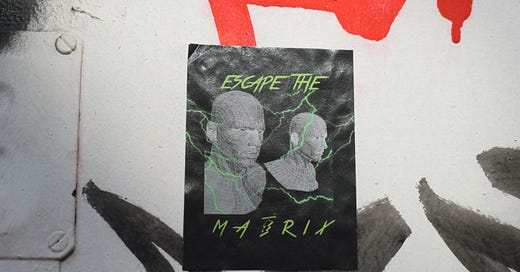







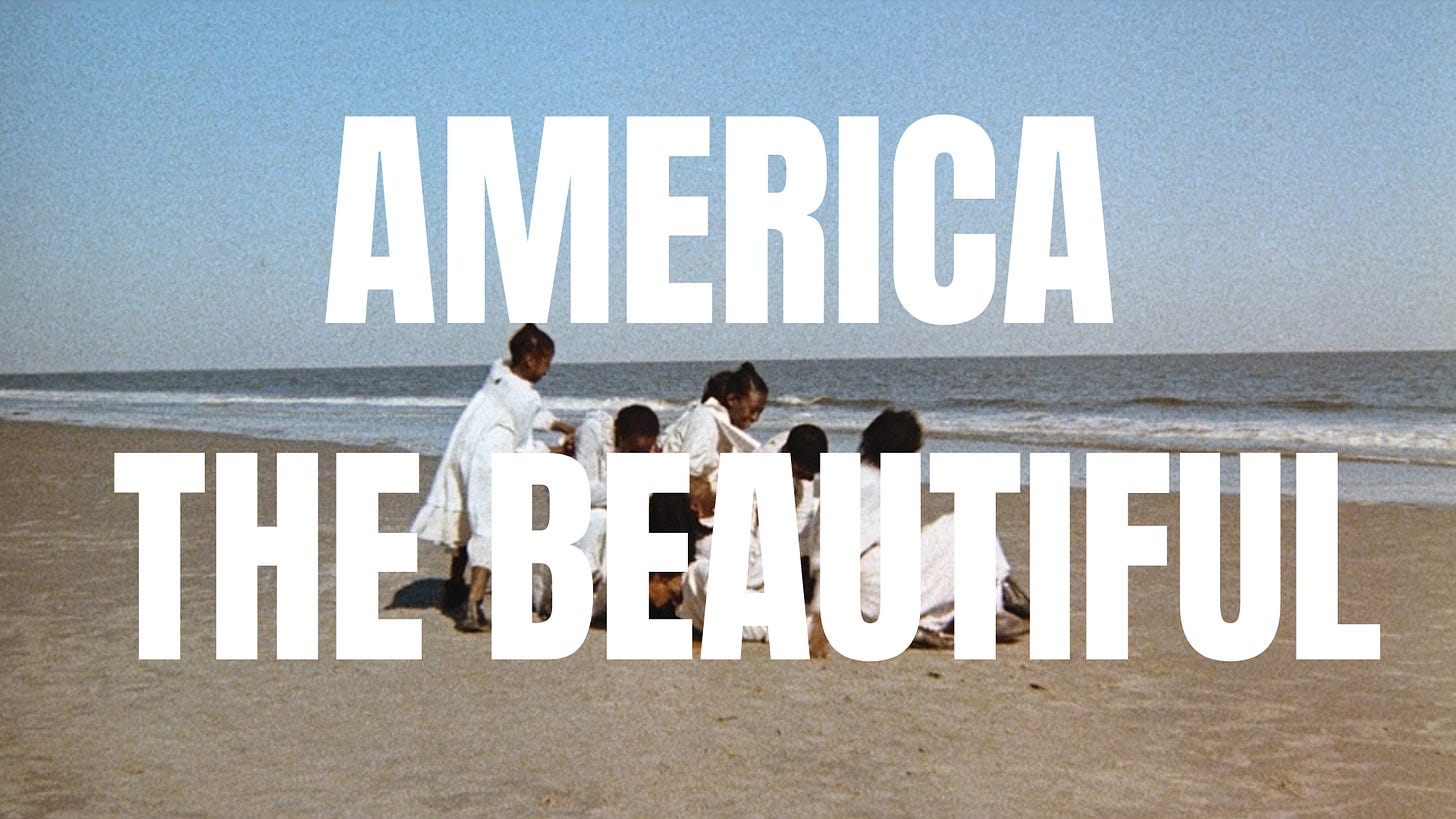



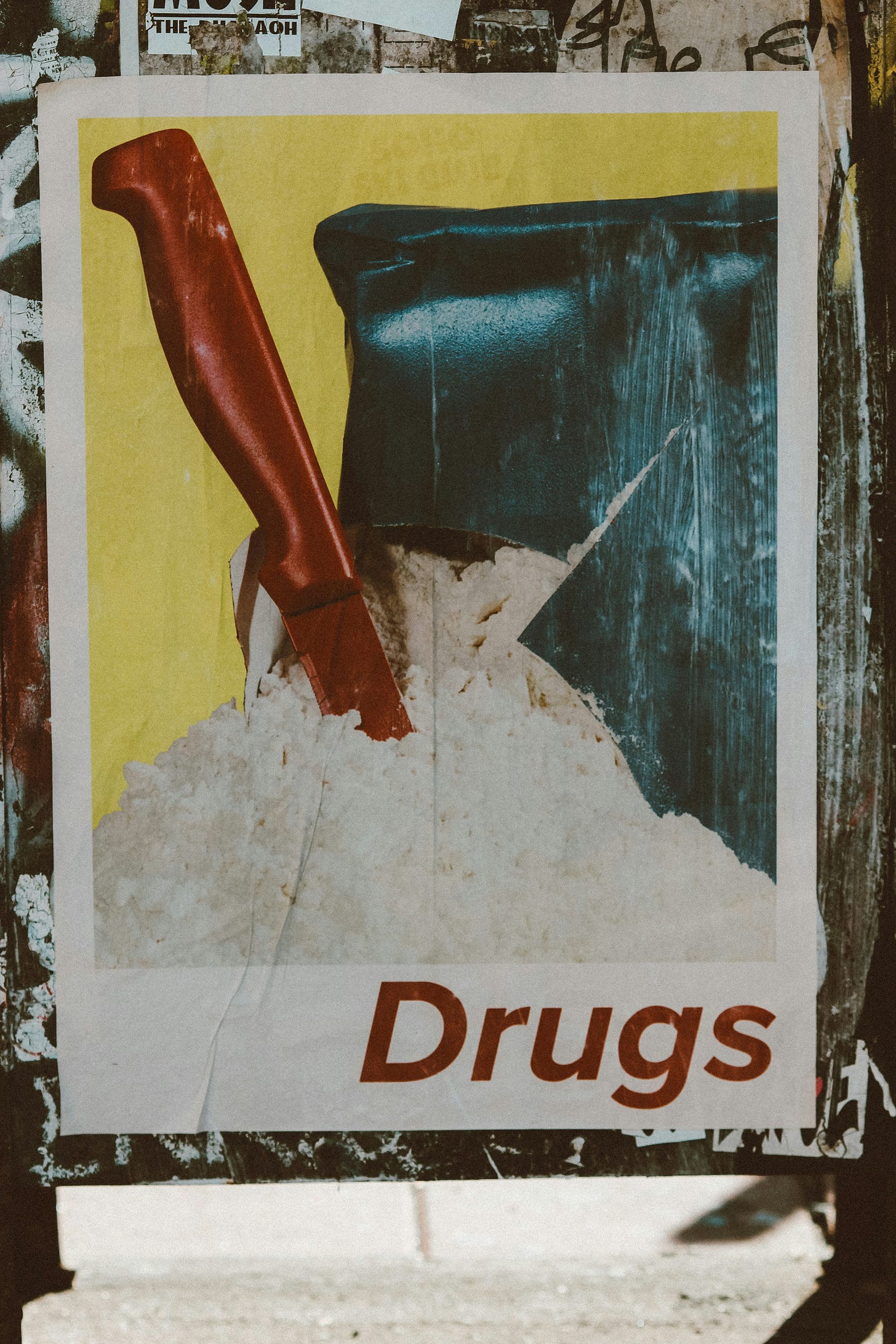
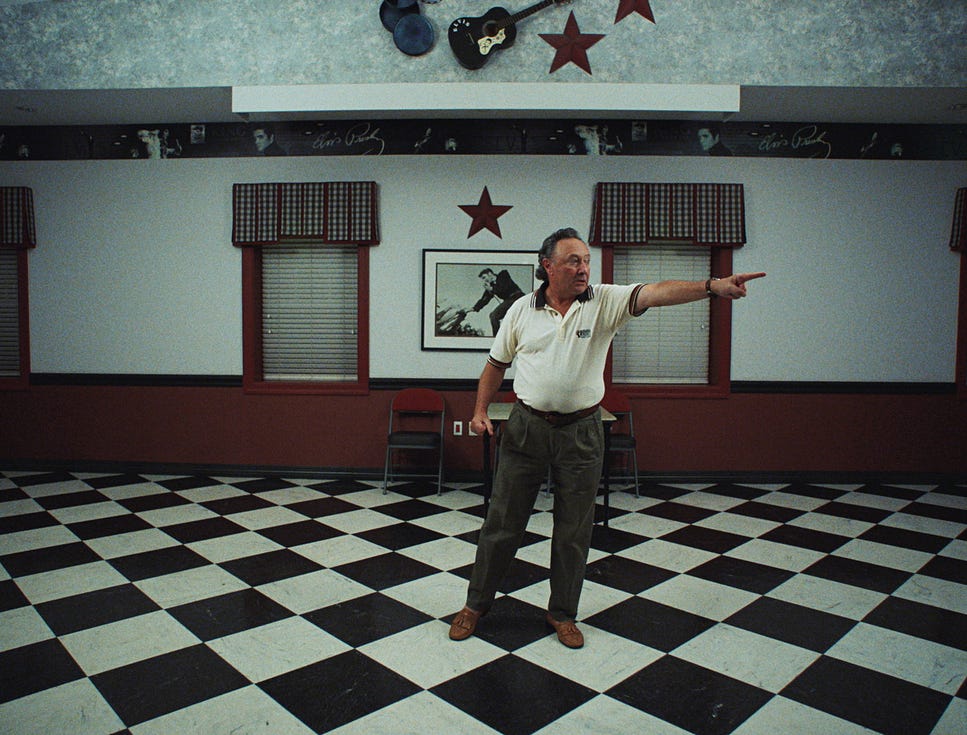
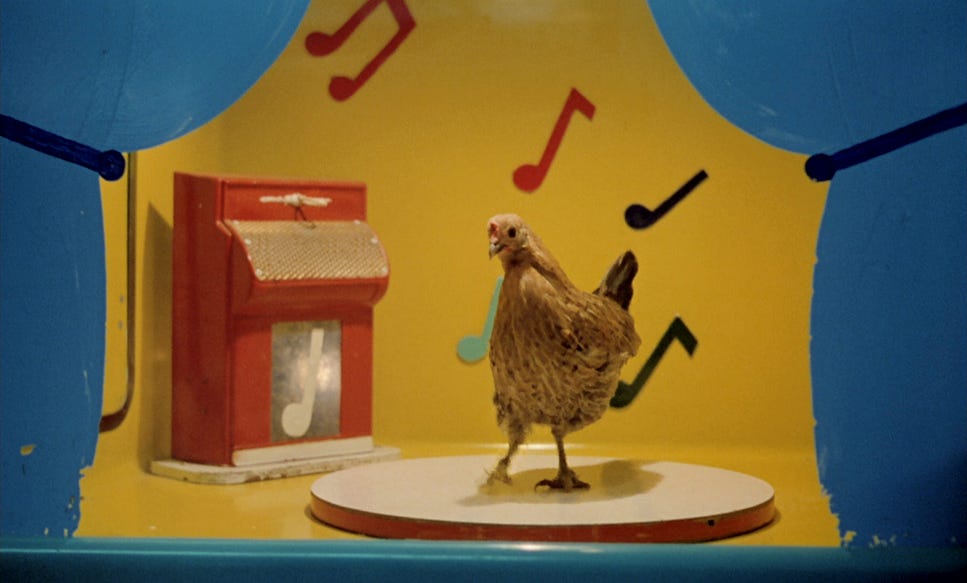
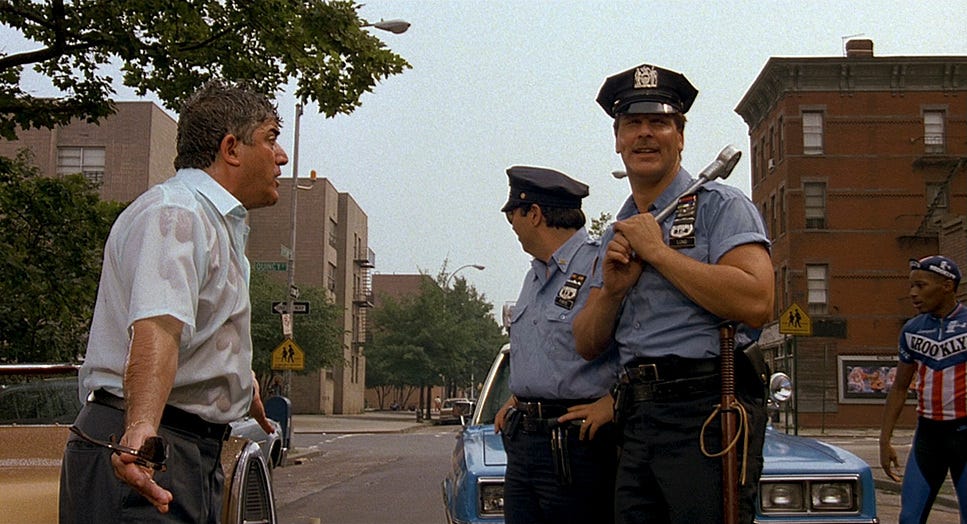
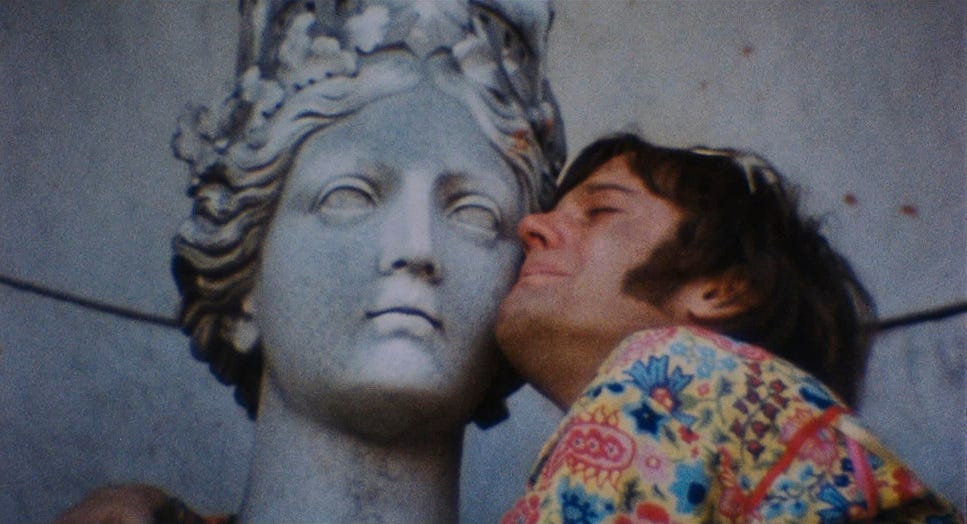
https://www.google.com/url?sa=i&url=https%3A%2F%2Fscreenrant.com%2Frobocop-2-movie-cancelled-neill-blomkamp-details%2F&psig=AOvVaw2aK7HWzhpXcTVpbVrZPzkf&ust=1748135951024000&source=images&cd=vfe&opi=89978449&ved=0CBYQjRxqFwoTCJDg_Zb4uo0DFQAAAAAdAAAAABAE
(did it post?)
The archetypal Hollywood myth. The rumor that, on opening night, the ending of ROBOCOP. The audience hears the OCP executive. The man asks, "What's your name?"
The machine, the one that once unthinkingly pledged allegiance to fascism, who considered himself a key asset to OCP, turns to the camera. The movie has referred to him as ROBOCOP constantly. But before he can say it, the audience roars. They say MURPHY. And then Robocop ALSO says MURPHY. Because OCP, as well as the movie studio, only saw him as a heroic bucket of bolts. He was just meant to sell toys.
It's the people who recognized his humanity. The person who remembered the man behind the metal. The movie, made by a Dutch madman, ends with this scene to remind viewers of the humanity of Murphy.
But it's America that sees the human wrapped in the machine. They applaud. Man has defeated automation. Man has defeated capitalism. Man endures. It was the last moment of American optimism in film. This was America.
Fromtheyardtothearthouse.substack.com
Great idea. I'd pay for zine in advance if I could!